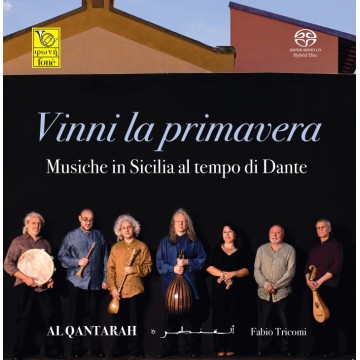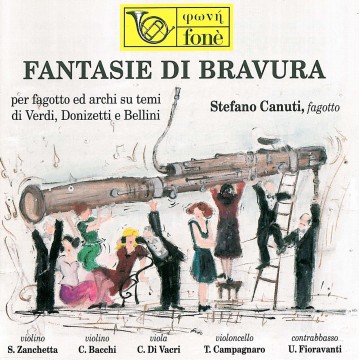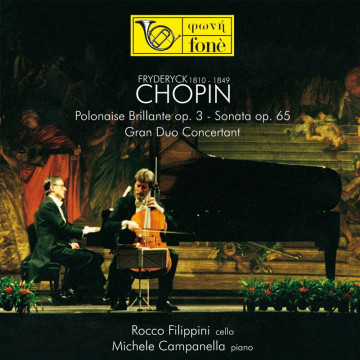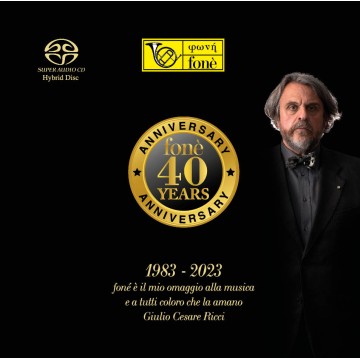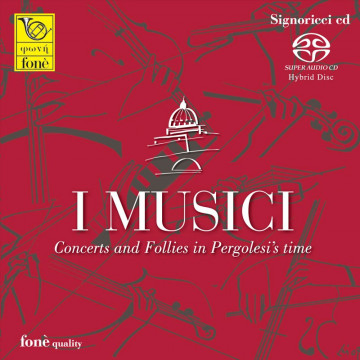L'AMICO FRITZ
CD n. 1
Act I
1. Preludietto (Orchestra)
2. Ma questa è una pazzia! (Fritz, David, Hanezò, Federico, Caterina)
3. Son pochi fiori (Suzel, Fritz)
4. Orsù, vieni tra noi, al fianco mio... (Fritz, Suzel, Hanezò, Federico, David)
5. Chi mai sarà? (Hanezò, Fritz, David, Federico, Suzel)
6. Laceri, miseri tanti bambini (Beppe, Fritz, David, Federico, Suzel)
7. Viva lo zingaro! (David, Hanezò, Federico, Fritz, Caterina)
8. Per voi, ghiottoni inutili (David)
9. Il suo sermone è splendido! (Beppe, Federico, Frtiza, David, Hanezò)
10. Son gli orfanelli... (Hanezò, Beppe, Federico, Fritz, David)
Act II
11. Oh! le belle ciliege! (Suzel, Coro)
12. Bel cavaliere, che vai per la foresta... (Suzel)
13. Suzel, buon dì (Firtz, Suzel)
14. Duetto delle ciliege Tutto tace... (Fritz, Suzel)
15. Oh! chi è che giunge? (Fritz, Suzel, Beppe, David, Hanezò)
16. Vediamo un po’! (David, Suzel)
17. Facessi vecchio Abramo(Suzel, David, Fritz)
18. Come va? (Fritz, David)
19. Quale strano turbamento (Fritz)
20. Fritz, noi partiamo... addio!(Federico, Fritz, Hanezò, Beppe)
21. Che più s’aspetta? (Federico, Fritz, David, Suzel, Coro)
CD n. 2
1. Intermezzo (Orchestra)
Act III
2. Tutto ho tentato... (Fritz, Coro)
3. Buon giorno, Fritz! (Beppe, Fritz)
4. O pallida, che un giorno mi guardasti (Beppe, Fritz)
5. O amore, o bella luce del core (Fritz)
6. L’amico Fritz fantastica d’amore! (David, Fritz)
7. Povero Fritz, l’amore in te si desta... (David, Suzel)
8. Non mi resta che il pianto ed il dolore... (Suzel, Fritz)
9. Come s’è fatta pallida! (Fritz, Suzel)
10. Ah! ditela per me quella parola (Suzel, Fritz)
11. Amici! Ho vinto, ho vinto! (David, Fritz, Beppe, Caterina)
12. Tu sposi, Fritz? (Federico, Hanezò, David, Fritz)
Recording date September 1991 – Centenary edition
Recorded at Teatro “La Gran Guardia”, Livorno
Recording supervisor and sound engineer Giulio Cesare Ricci
Editing Michele Lippi
General producer Giulio Cesare Ricci
Microphones n. 2 Numann U47
Advanced Mike Pre-amplifier NAGRA
Digital tape recorder TEAC R-1
Analog tape recorder Studel J 37
Pre-amplifier Jeff Rowland CONSONANCE
Power amplifier Jeff Rowland MODEL 1
Monitor speakers B & W 801 series III
Cables power and signal Audioquest COBALT and LAPIS
INTRODUCTION
The CEL -Teatro di Livorno Teatro di tradizione started a wide pluriannual project which aims at bringing out and rediscovering the production of the greatest fellow -citizen musician, as well as the authentic leading figure of the “verist” opera: Pietro Mascagni. This route, initiated in 1988 with the acclaimed preproposal of Iris, continued the following year with another not well-known Mascagni’s opera, Il Piccolo Marat, and culminated in the triennium 1990 -1992, with the celebrations of the centenary of three juvenile creations: Cavalleria Rusticana (‘90), L'Amico Fritz (‘91) and I Rantzau (‘92). These ones were carried out with productions of high artistic level, involving not only interpreters of proved prestige but also young talented conductors and singers. in order to guarantee the necessary generational replacement: from the great specialists of the verist interpretation to the most accredited representative of the last generations. The different phases of the project were supported by a large series of collateral cultural initiatives: meetings, lectures, stages about Mascagni’s production and the Italian contemporary opera during the fervent season of the Giovane Scuola and the Verism. The growing attention of the audience and the international critics, the unexpected revival of interest caused by Mascagni’s music in other institutions in Italy and abroad and in the very important field of recording industry made all the programme valid. Exactly in this way the cooperation between the “fruitful” moment of the Progetto Mascagni and Foné can de set; after the issues of Cavalleria and I Rantzau, (the two phases more demanding and prestigious of the cycle) the large Mascagni’s collection started by the livornese Record Company enriches its catalogue documenting another important chapter of the project. It is one of the most loved operas not only for Mascagni’s fans and for Verism lovers. but also, for the great audience: the edition of L'Amico Fritz staged for the first time at the Teatro Costanzi, Rome, in 1891 which confirmed the accession of the musician from Leghom in the musical international survey after the sensational success of Cavalleria Rusticana. The recording of L’Amico Fritz reproposes the edition staged at the Teatro La Gran Guardia in 1991, on the occasion of the centenary of the world -première. The staging in 1991 had had its pillars in the company of singers formed by some of the most interesting italian talents and in the direction of the young Alessandro Pinzauti. one of the most appreciated directors of the last generation. L’Amico Fritzis an important return in the official recording catalogues: the presence of the Mascagni’s masterpiece has always been quite isolated in the recording studio, and this new edition is filling a considerable gap, coming alongside the only official recording in the catalogue realized by EMI in 1969 under the direction of Gianandrea Gavazzeni. This operation executed underlines and confirmed the joined undertaking of CEL. Amministrazione Comunale of Leghorn, and the Record Company Foné in rediscovering and diffusing the less known and executed operas of Pietro Mascagni. in order to increase the recent revival of interest towards the verist opera and the Giovane Scuola Italiana as well as the development of the youngest and promising musical forces.
MARCO BERTINI Presidente del C.E.L. – Teatro di Livorno

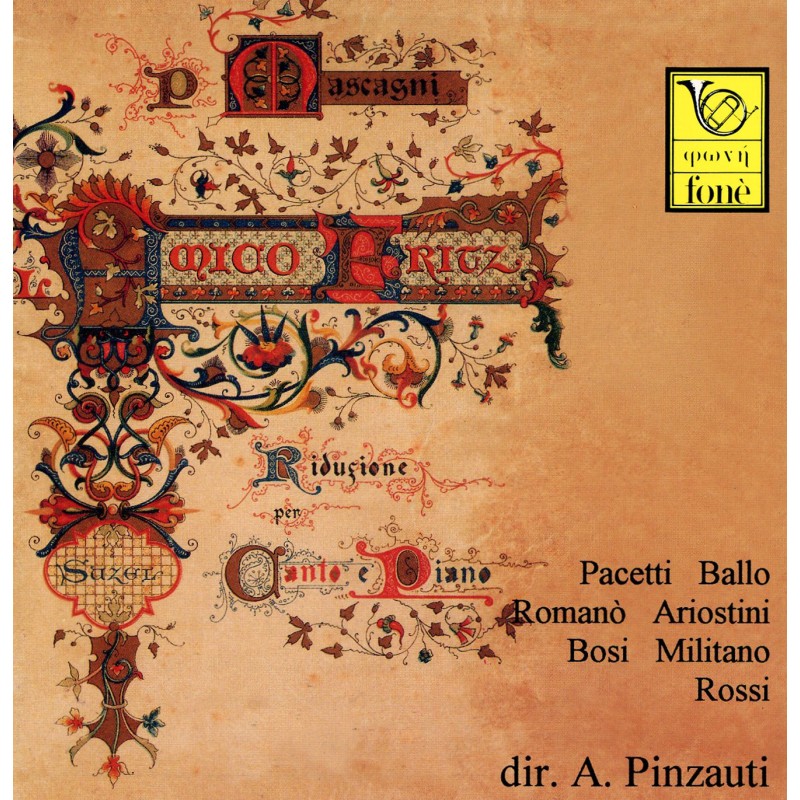

 Hd Tracks
Hd Tracks






